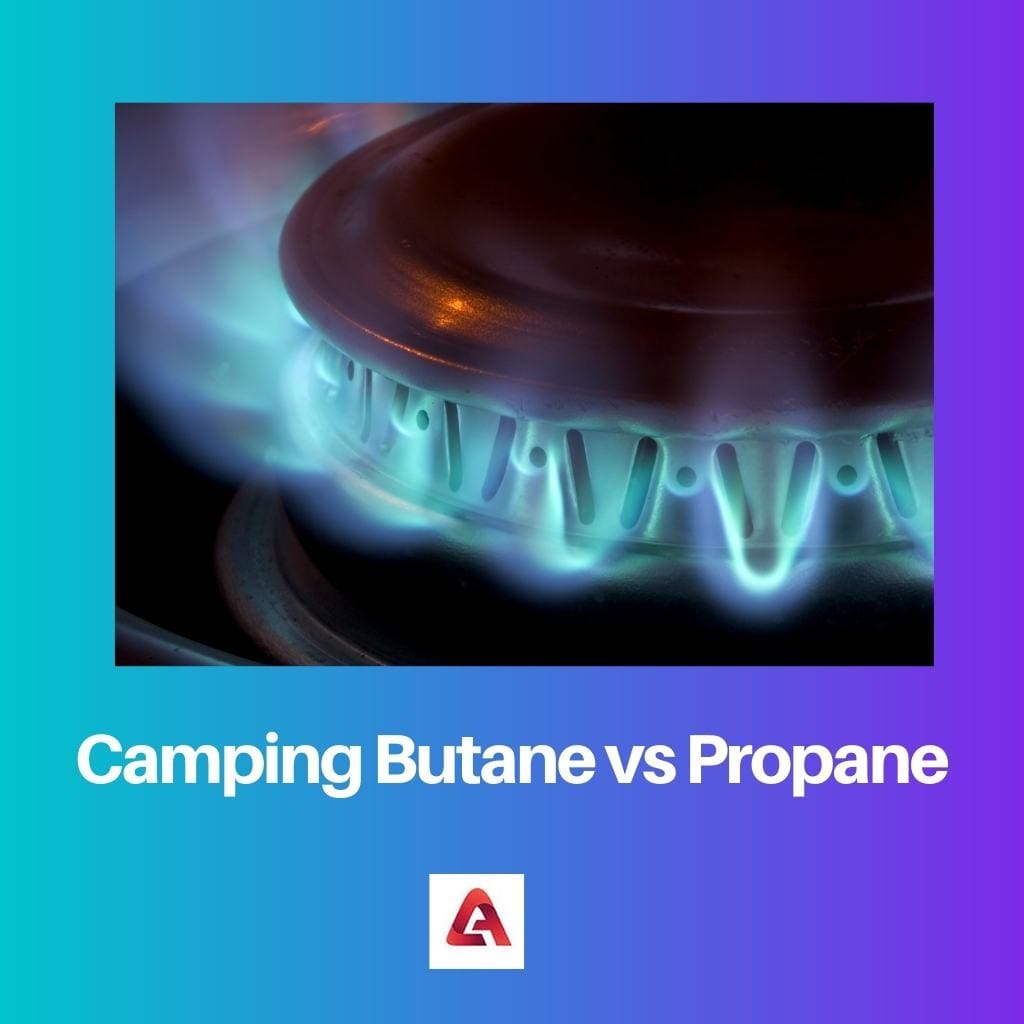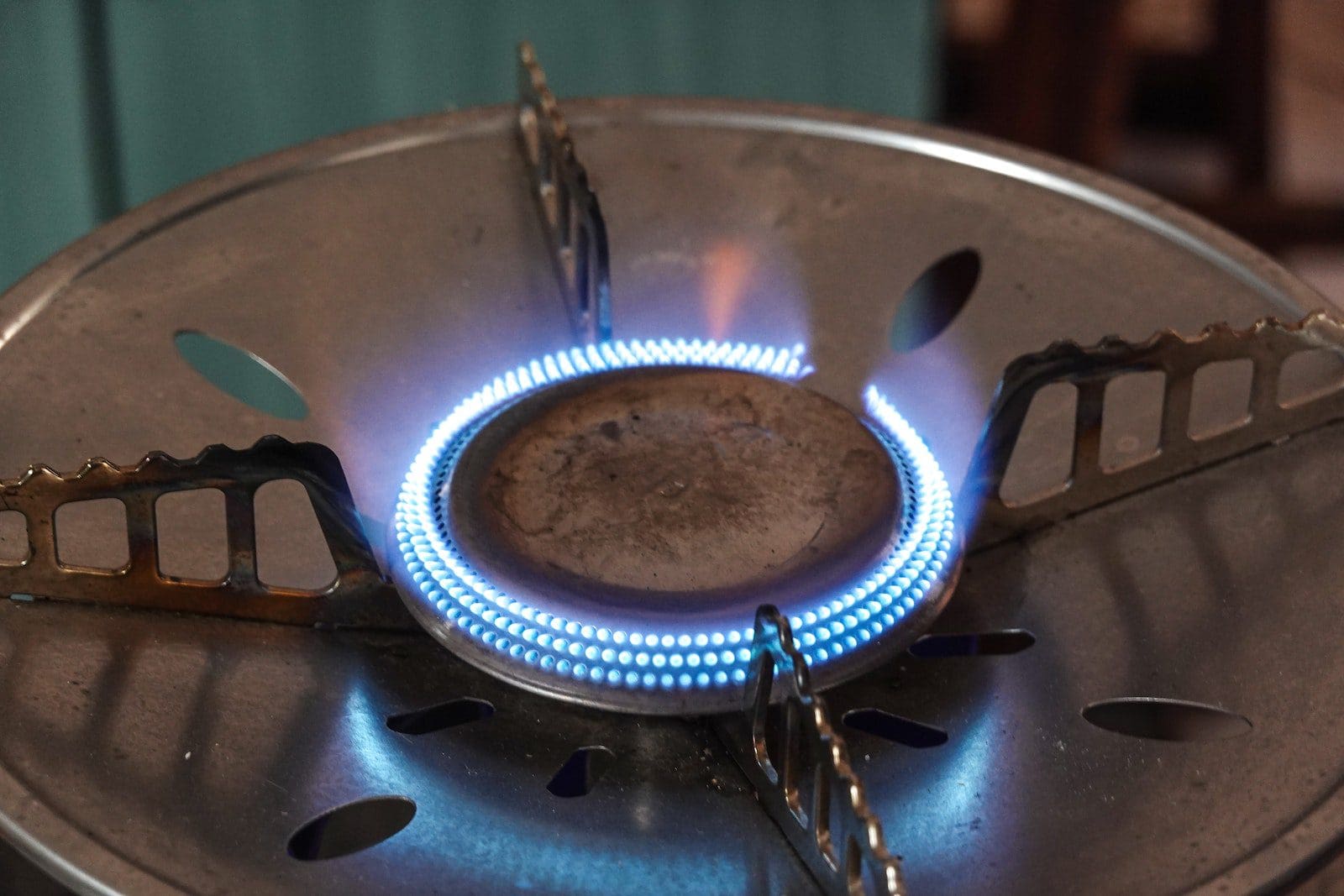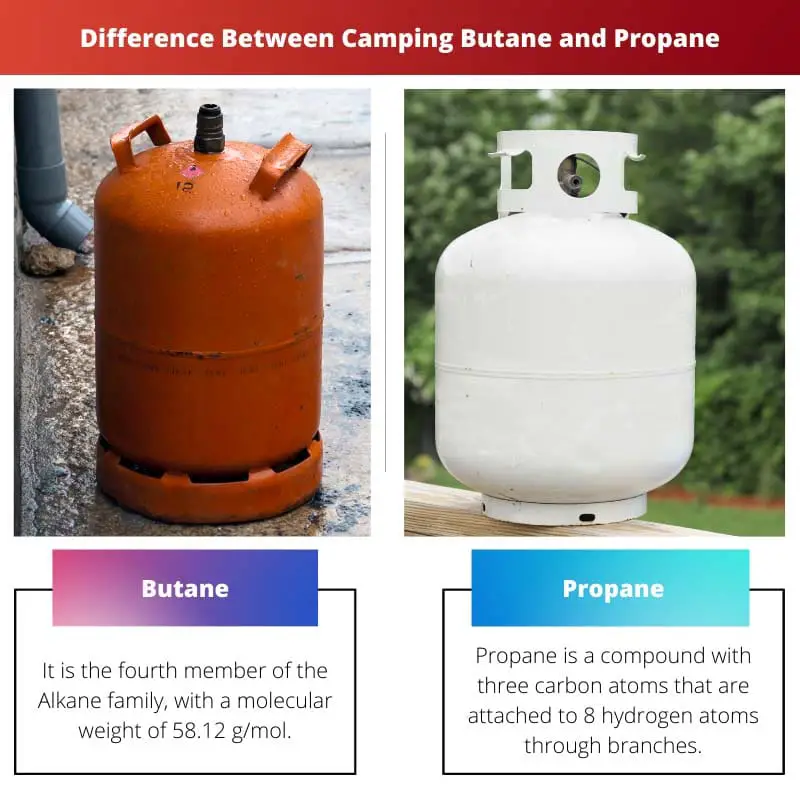There are a lot of compounds in the Alkane family. Propane and Butane are among the initial members of their family. While Butane has a molecular formula of C4H10, Propane stands for C3H8.
Also, Propane and Butane differ a lot in their molecular weight.
Key Takeaways
- While both fuels are commonly used for camping stoves and lanterns, butane is considered more efficient in warmer temperatures.
- Propane is a better option for colder weather, as it is less affected by temperature changes and can maintain its pressure in low temperatures.
- Butane can be more convenient for shorter camping trips, while propane is better for longer or colder weather conditions.
Camping Butane vs Propane
Camping butane is a gas at room temperature that is highly flammable, is easy liquefiable and has no color, and is the fourth member of the Alkane family. Camping propane is a colorless and odorless gas that can be converted to liquid when compressed. It is the third member of the Alkane family.

Propane is the third member of the Alkane family, with a molecular weight of 44.1 g/mol. It is a colourless gas that smells of faint petroleum at room temperature.
As a liquified gas, propane is used in households for cooking purposes. Other applications of Propane include its use as an autogas in vehicles.
Butane acts as the fourth member of its family. It has a molecular weight of 58.12 g/mol and acts as a blender for gasoline.
Combined with other hydrocarbons, it serves as liquified petroleum gas in cylinders. Butane also works as a feedstock in the production of Butadiene and Ethylene.
Comparison Table
| Parameters of Comparison | Butane | Propane |
|---|---|---|
| Boiling Point | It has a boiling point of -1 °C in its standard form. | Due to its low boiling point of -45°C, it can convert from liquid to gas even in very extremely cold conditions. |
| Molecular Formula and weight | It is the fourth member of the Alkane family, represented by C4H10. Its molecular weight is 58.12 g/mol. | Propane is the third member of its family with a molecular formula of C3H8. Its molecular weight is 44.1 g/mol. |
| Uses | Butane is used as a fuel in cigarette lighters and as a gas in aerosols. | Propane is used as LPG for exterior purposes. It also works as fuel for vehicles and ships. |
| Behaviour in Cold Climate | It has a higher boiling point that hinders its ability to vaporize at lower temperatures. | With its lower boiling point, propane can vaporize even in icy conditions. This makes it a better option for camping stoves in cold climates. |
| Behaviour in Warm weather | Its vapour pressure is lower than Propane when considered at an equivalent temperature. This feature of Butane makes it better for camping stoves in hot conditions. It is also inexpensive and easy to carry. | Propane is slightly expensive and is heavy to carry in bulk. |
What is Camping Butane?
It is the fourth member of the Alkane family, with a molecular weight of 58.12 g/mol. Butane, also known as n-butane, is a gas at room temperature that is highly flammable.
It has no colour, is easily liquefiable, and can easily vaporise at room temperature.
The highly flammable nature of Butane makes it an excellent option for cigarette lighters as a fuel. The IUPAC name of Butane is Methylpropane and comprises one isomer, Isobutane.
In Butane, branches link four carbon atoms to ten hydrogen atoms.
Butane also acts as a solvent to extract fragrance from other substances. The eco-friendly nature of Butane makes it a great option as a coolant for refrigerators.
Butane torch works as fuel for cooking and camping stoves. It is easy to identify Butane leaks as it releases a foul smell when mixed with hydrogen sulfide.
Filtration removes the contaminated oil from Butane that is commercially available. Butane is said to be denser than air and has Butanium as its conjugate acid.
Though Butane is less hazardous, it can lead to unconsciousness, drowsiness, and temporary memory loss, if consumed directly by the human body.

What is Camping Propane?
Propane is a compound with three carbon atoms attached to 8 hydrogen atoms through branches. At room temperature, it is a gas but is convertible into liquid when compressed.
It is an odourless and colourless gas under normal circumstances. Propane is a very weak acid and has Propanium as its conjugate.
The third member of the Alkane family was found in 1857 by Marcellin Berthelot. When natural gas is put together with petroleum, the by-product is Propane.
Isopropane, an isomer of Propane, is a refrigerant with almost zero side effects on the ozone layer.
One of the most vital applications of Propane is in domestic cooking and industrial purposes. Due to its lightweight, it is easily transportable to areas that lack pipelines for natural gas.
With such a low boiling point, Propane is the ideal choice for gas stoves in colder climates.
Propane also functions as fuel in automobiles and ships in the ocean. It creates almost no pollution compared to other fossils that operate as fuel.
Propane is liquified at a low temperature and acts as an extraction material for animal fats and vegetable oils.

Main Differences Between Camping Butane and Propane
- Propane exerts higher pressure than Butane, making it a better option for LPG gas stoves. It is also a good-to-go option for exterior purposes.
- Butane is more flammable and gives more output when compared to the same volume bottle of Propane. It makes Butane a good option for camping stoves and Barbecues.
- While Butane is preferred during summers due to its lower vapour pressure, Propane is a better choice for colder climates. Butane does not vaporize below 0.4°C, making it unable to be used as a fuel.
- As Propane vaporizes slowly when suppressed to low temperatures, it is better to be stored in a container for longer than Butane.
- Regarding trekking, adventure, and hiking in cold weather, Propane is favoured for cooking stoves.

Last Updated : 11 June, 2023

Piyush Yadav has spent the past 25 years working as a physicist in the local community. He is a physicist passionate about making science more accessible to our readers. He holds a BSc in Natural Sciences and Post Graduate Diploma in Environmental Science. You can read more about him on his bio page.

The information presented in this article is not only educational but also intriguing. It effectively delves into the differences between butane and propane, making it an enlightening read for outdoor enthusiasts.
I appreciate the level of detail provided in this article. It’s evident that the author has a strong command of the subject matter and has presented the information in a compelling manner.
Absolutely, Jackson Freya. The scientific insights contribute to a deeper appreciation of the distinct characteristics of butane and propane in the context of outdoor activities.
This article provides an insightful comparison of the differences between butane and propane for camping purposes. I found it very informative and helpful for choosing the right fuel for my camping trips.
I agree with you, Cknight. The information provided here is very useful for campers to make an informed decision based on their specific needs.
I appreciate the detailed breakdown of the chemical properties and uses of butane and propane. It’s great to see such high-quality content on this topic.
This article seamlessly integrates scientific knowledge with practical implications, resulting in a comprehensive comparison of butane and propane. It’s a must-read for outdoor enthusiasts seeking informed decision-making.
I share your view, Louis Collins. The thorough examination of the characteristics of butane and propane offers valuable guidance to individuals engaging in outdoor activities.
The scientific explanations in this article provide a comprehensive understanding of the chemical properties and behaviors of butane and propane. It’s a valuable read for anyone interested in outdoor adventures.
Well said, Nmoore. The nuanced comparison of butane and propane is beneficial for outdoor enthusiasts who prioritize safety and efficiency in their camping experiences.
I have always wondered about the differences between butane and propane, and this article has provided me with a comprehensive understanding of their properties and uses. It’s an excellent resource for campers.
I appreciate the scientific approach taken in this article to explain the chemical composition and practical applications of both butane and propane. Well done!
I couldn’t agree more, Hmurray. The details about the behavior of butane and propane in different weather conditions are particularly helpful for planning camping trips.
The article offers a thorough analysis of the characteristics and behaviors of butane and propane, which is essential for campers to understand when choosing the most suitable fuel for camping stoves.
Absolutely, Canderson. The comparison table and descriptions of the molecular formulas provide valuable insights for outdoor enthusiasts who rely on these fuels.
The article’s comparison of butane and propane is not only informative but also presented in an engaging manner. It’s refreshing to see such intellectual discourse on camping fuels.
I wholeheartedly agree, Wshaw. The detailed analysis makes it easier for campers to choose between butane and propane based on the specific requirements of their outdoor activities.
This article’s scientific approach to comparing butane and propane is executed with precision and clarity. It’s a valuable resource for outdoor enthusiasts who seek a deeper understanding of camping fuels.
I couldn’t agree more, Ashley Chapman. The depth of analysis in this article serves as a testament to the author’s expertise in the subject area.
While I have some knowledge of butane and propane, this article expanded my understanding of their molecular structures and how they function in various environmental conditions. It’s a commendable piece of scientific literature.
I share your sentiment, Rob92. The breakdown of the boiling points and vaporization behaviors sheds light on the suitability of butane and propane for camping in different climates.
The article serves as an exemplary piece of scientific literature, offering detailed insights into the distinct properties and applications of butane and propane. It’s a commendable contribution to the field of outdoor education.
Well articulated, Natasha Hill. The article’s focus on educating readers about the scientific intricacies of camping fuels is both informative and intellectually stimulating.